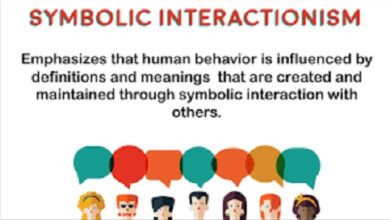Difference between State and Nation and Similarities and FAQs
State and Nation
In this article we will provide you the difference between State and Nation and Similarities and FAQs.
What does nation mean?
Nation is a concept that refers to a group of people, geographically defined, with a shared history and the awareness of belonging to the same community. It is generally associated with internationally recognized sovereign states, which have their own government and their own law. These nations can be large or small, developed or developing. They can also be monolingual or multilingual; Its inhabitants can have different ethnic roots and even fight among themselves for political reasons. However, all members of a nation are part of the same historical-cultural group and share common values related to the past and collective identity.
What does status mean?
State is a concept that is used to refer to the set of political and legal conditions and relationships existing between the members of a society. It is understood as the organizational, institutional and legal system that governs social relations within it. It is composed of elements such as sovereignty, the authority of the government, the delimited territory with its internationally established and identified limits, the inhabitants recognized by their laws and legal regulations. The State acts through its public agencies responsible for complying with all those measures dictated by its highest authority: the national or state government. The main functions of the State are to guarantee legal security, resolve social conflicts without direct violence; also supervise each area to ensure general interests and maintain peaceful order within the country.
Similarities between nation and state
Nation and State are two concepts that are closely related, but with some differences. Both words refer to a political entity made up of citizens of a given territory. States are usually larger geographically than nations, however, there are exceptions. Nations may contain several States or regions and the word “nation” has additional emphasis on the cultural identity of the group of people involved. States generally have internationally recognized borders and separate legal systems to govern their internal affairs; while Nations are organized around common social issues such as language, culture and shared history.
Differences between nation and state
Nation and State are terms used to describe a group of people living in a given territory. Although the two concepts are interrelated, there are some important differences between them. A nation refers to the culture or identity shared by the members of a specific human group, which includes their language, customs, and particular traditions. In contrast, a State describes the legal and administrative framework upon which a particular country functions. The State has sovereign authority over the population of the territory delimited by borders recognized by other neighboring states; defines national and international laws; controls its own economy; represents its citizens to the outside world; It maintains diplomatic relations with other countries and demands respect for its political decisions. Together, the characteristics of both terms combine to form what we know today as “country.”
Frequent questions
What is the State?
The State is an organized political entity that exercises control over a specific territory, in order to protect its citizens and establish legal norms to govern daily life. The State has exclusive responsibilities in relation to the maintenance of internal and external order, as well as the defense of its sovereignty against other nations.
What is the State and the government?
The State is an organized political community that has the power to control internal and external affairs in a given geographical area. The government, on the other hand, is the institution in charge of exercising the power of the State to guarantee the security and well-being of its inhabitants.
What is the State and how is it formed?
The State is an organized political entity that holds the monopoly of legitimate force over a territory and its inhabitants. It is formed through social consensus, where citizens decide to delegate their power to elected representatives to carry out basic functions of government such as administering justice, taxes and infrastructure. Individuals also commit to the State by promising to respect its laws and obey the rulers.
| State | Nation | |
|---|---|---|
| Definition | As for the state, it is defined as the set of governing bodies that constitute a sovereign country. These bodies are regularly protected by the will and free choice of their inhabitants, as well as by a constitution and other codes. What is the difference between State and Nation?
A state is limited by a well-defined geographic territory. |
|
| Legal-political delimitation | A state can host one or more nations. | On the other hand, when a state is identified as the seat of a nation, it is called a nation-state. |
| Examples | An example could be the Swiss nation:
Switzerland is a small European country made up of people of different ancestry in addition to the Swiss. For example, there are people of German, French and Italian descent. In this case, it could be said that the Swiss state is made up of people of different origins. However, the vast majority accept and submit to the Swiss state of good disposition, since they are its citizens. |
There are nations that in themselves do not belong to any state or, on the contrary, belong to more than one. Such is the case of the gypsies, who have dispersed throughout various countries of the world. Although many have a culture, history, customs and traditions in common, not all share the same nationality. This does not prevent them from identifying as members of the same cultural group. What is the difference between State and Nation? |
